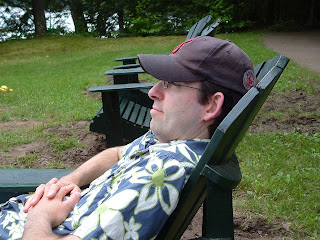I would like to think of myself as a saver, and I tend to subscribe to the latte factor philosophy of savings. (I believe it is David Bach that owns the term, but the principle is universal. To see his take on the subject and calculate your personal latte factor, click here .) Essentially this consists of paying close attention to the details of your daily expenditures, then finding and eliminating those 'little' items that you buy but don't really need.
The basic point here is that it is quite easy to spend $5-$10 each day on coffee, snacks, magazines, and other seemingly small items that, while enjoyed for a moment, are really not very important to your happiness or well being, especially considering the immense impact the unneeded expense has on your finances. Every day when you spend that $10 it never seems like a lot of money but over a month, year, decade, etc. it adds up to a considerable amount.
This principle is important to developing a saving habit and goes a long way towards shoring up one's finances.
The goal of this exercise isn't to try to cut out as many expenditures as possible, but rather to perform a simple cost/benefit analysis on your spending. It leads to questions like "Is that latte and croissant every morning really worth $300 a month to me?" If it really is, then go right ahead and keep on spending that way. For most people, however, the problem is that they don't intend to spend that much on those items, but simply have never thought about the true costs involved. Those people will probably realize that their morning treat isn't that valuable to their lives and will look for for less expensive ways to start their day.
I think some people may take this principle to an extreme and forget that it is really just a method to make you pay attention to where your money is going and make you compare the benefit you receive from purchases to what you actually spend on them. I've seen some discussion recently online about people who are obsessive about saving for retirement (usually not a bad thing at all!), but perhaps make too many sacrifices throughout their working lives to fund their retirement accounts. What is the point in putting away all that money for your latter years when you may only barely be scraping by today? If money spent now on activities and items important to you would improve your quality of life significantly, by all means it should be spent! Sure, this is not a problem most people have, but it is important to realize saving can be taken too far.
Certainly it is important to save money for retirement, and there are lots of great guides out there for how much you should save and where you should put it. My point here is just to make sure you stay focused on the real goal for all of us: to lead a good life. Each individual must determine what they really want out of life, both now and far in the future, and plan accordingly. Spending too much now on frivolous things may make for a miserable retirement, but is an enjoyable retirement really worth misery in the present time?
The Mrs. and I are tackling this balancing act now, as we are both finally out of school and in the real world. Of course, making decisions about how much you need to spend to maximize your quality of life now and how much you need to save to maximize your quality of life in the future are not amongst the easiest you'll face in your lifetime.
The real point here is that it is vitally important to ask yourselves these questions even if you have no clue as to what the answers may be. Avoiding these questions, as many people do for far too long, only hinders you from controlling your own financial lives, and certainly reduces the chance of living a good life.
Episode 289: Santa Maria
7 years ago


No comments:
Post a Comment